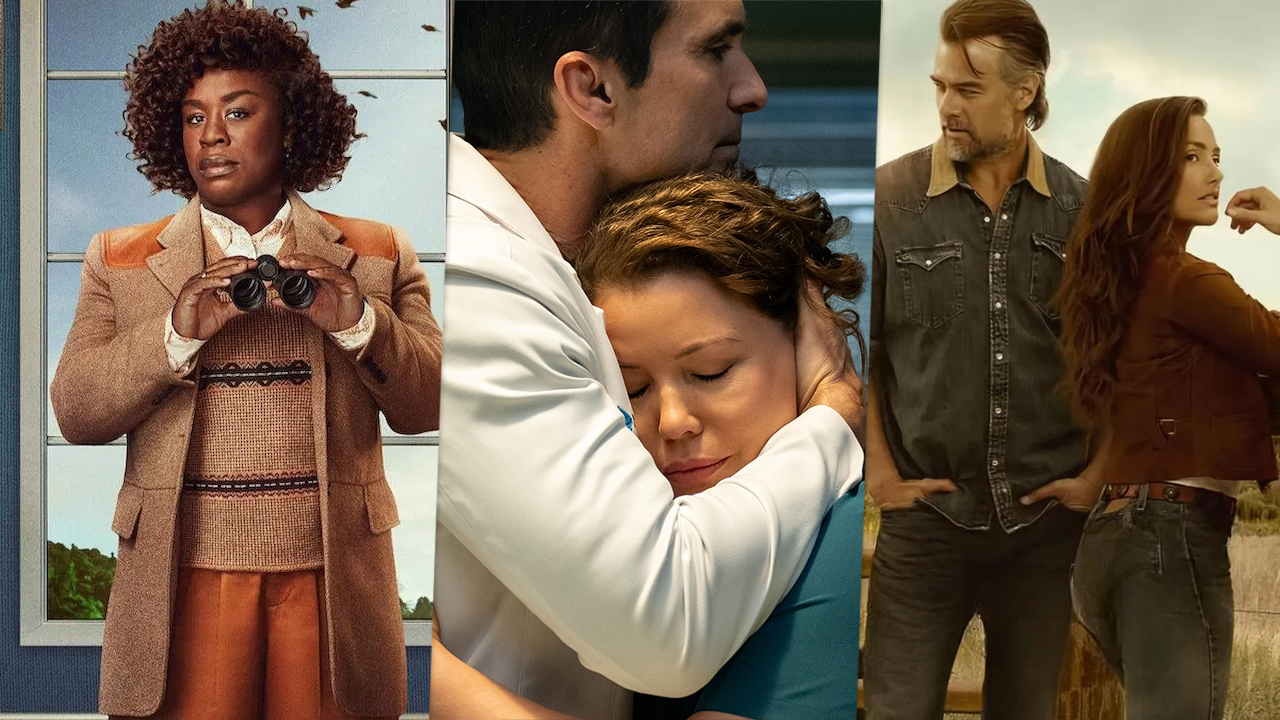Speaking in Draft is an interview series in which Intermission staff writer Nathaniel Hanula-James speaks with some of the artistic voices shaping Canadian theatre today. In a mixture of lighthearted banter and deep dives into artistic practice, this column invites artists to share nascent manifestoes, ask difficult questions, and throw down the gauntlet at the feet of a glorious, frustrating art form.
When Allen MacInnis tells a story, you know that a dozen other tales are waiting in the wings, ready to burst on stage. And no wonder: an alumni of the Vancouver Playhouse’s historic acting school, from which he graduated in 1981, MacInnis has spent over 40 years working in Canadian theatre, first as a performer, then as a director and artistic leader: he served as artistic director of Winnipeg’s Prairie Theatre Exchange (PTE) from 1995 to 2002, and of Toronto’s Young People’s Theatre (YPT) from 2002 to 2020. Since passing on the latter position to his successor, Herbie Barnes, MacInnis has returned to freelance directing and teaching.
MacInnis and I met for coffee on the patio of Church Street Espresso in Toronto. Amid the clang of construction and the roar of garbage trucks, we chatted about his love for musicals, the importance of valuing young people as theatregoers, and why more artists need to leave room for audiences to hate their shows.
This interview has been edited for length and clarity.
In high school you were heavily involved in music and your first instrument was the bassoon. Is that correct?
When I was in junior high in Edmonton, there was a university program on Saturdays for kids whose schools didn’t have a music program. I think they looked at my mouth and determined that I had the right aperture for the bassoon. Later in high school, I played clarinet, flute, and baritone sax. I taught myself guitar, and to play chords on the piano. The benefit to my later career in theatre was learning to read music. When I directed my first musical, I enjoyed collaborating with the music director on new arrangements.
What was that first musical?
Hit the Deck, a 1927 musical by Vincent Youmans, which the Shaw Festival revived in 1988. The show had one or two songs that were known to the public as jazz standards, but otherwise it was really quite stupid — but it was fun to do.
A woman came up to me at the intermission of the first preview, and said to me, “I saw the original production when I was a child. You made a few changes.” I said, “Are you okay with them?”
She said, “I think I approve.”
The last installment of Speaking in Draft was an interview with high school drama teachers. You taught junior high before training as an actor. Has that experience served you in your artistic career?
Teaching had a huge impact on what I thought the purpose of theatre was. I’m most interested in, and committed to, theatre as a form of change: an opportunity for a new perspective that causes you to think or act differently. I could even find that in Hit the Deck, actually. Being delighted is really good for the soul. It changes your week, or maybe even your year.
At YPT, what were your biggest joys and challenges in creating work for young people?
A whole lot of kids hear everything, are invested in everything, that happens in a play — they’re tracking the whole thing. You have to take seriously what you’re putting in front of them. Of course, then you think, do we do that for adults? Or do we cheat? Do we hope to get away with stuff that isn’t consistent? It’s a huge dramaturgical lesson. When you treat young people as real audience members, not as practice audience members, then you care about their experience and their response.
I think the chief attraction for me is the way that kids are really good pretenders. So of course, in creating work for them, we must pretend at the highest possible level. The other thing that fuels the joy of it is the pledge that, though we will sometimes go to uncomfortable or scary places, we will always come back to a place of hope. That’s the rule of theatre for young audiences.
With teens it was always more challenging, but ultimately the same rules apply. They’re going to be a lot more suspicious of anything you want to tell them, especially about being a teenager, because they’re experts in that and you’re not. It was really important to take them seriously, and never talk down to them.
In the 2012-13 season, we brought in a wonderful production called La Fugue from Quebec, created by the company Qui Va Là, that was all done through object puppetry and rock music, with minimal dialogue. The teens were like, ‘Really? Oh, the jacket’s supposed to be a girl? So what?’ But then they began to realize, ‘Wait a minute. This is a story about a missing young man. This is dead serious.’ I literally saw them climb their way into the play.
We presented a young audience version of nngrfg by Berend Mackenzie in 2011. The title became Would You Say the Name of This Play? And then I think in small print underneath, it says nggrfg. That was another play where you could see teenagers act as if they were having none of it, especially young men. I noticed the kind of policing they do of each other. Sometimes that would last through the whole show until the Q&A, during which it would almost always come up that Berend had been arrested, been to jail, and had gone through some shit. Suddenly, Berend was real to them.
How have you witnessed Canadian theatre change over your career?
It’s not our responsibility, but the truth is that theatre for young audiences has had a positive impact on audience development. There aren’t very many 35-year-olds who wake up one day and say, “I think I’ll attend a play for the first time!”
I think, starting in the 2000s, commercialization had a negative impact. Arts councils were saying that theatre companies spent a dollar so brilliantly — so brilliantly that they decided to give them 75 cents. They assumed companies would figure it out.
The problem was, people did figure it out. One of the ways they did that was to be more commercial, and attract incredible ticket sales with easily digested work. Some companies used that money to fund more experimental theatre. Others used it to fund bigger shows, bigger venues, and higher salaries.
I think we ended up in this place where we were actually pretty precarious, even before the pandemic. You had this dependence, for a lot of theatres, on significant audience attendance to keep going. Then COVID hit. In many cases audiences haven’t come back at the same level. Today, how do you balance revenue with making sure that your only definition of success isn’t the hit that keeps on giving?
How did you navigate moments of crisis as an artistic director? Did you find that the artistic and managerial sides of your work often pulled you in different directions?
Both times that I was an artistic director, the management partner that I worked with was also there to make art. It was about trying to find balance, so that there was revenue coming in, and we were pursuing revenue, but not as the end in itself.
Working with YPT’s then-executive director Nancy Webster [who left the company in 2024] to articulate a vision was very stimulating. Nancy is a great writer. I’d write stuff, and she’d go, ‘A lot of words, MacInnis, but what do you mean by this sentence?’ I’d say, ‘It’s obvious.’ She’d say, ‘No, it’s not.’
In the end, Nancy coined the phrase, ‘Learning is at the centre of everything we do.’ I went, ‘Yeah, that’s what I mean!’ For the whole time we worked together, that value was key. It influenced the fundraising department, even the production department. Yes, there will be young people coming in to watch you work, and you will stop for 10 minutes and talk to them, because learning is at the centre of everything we do.
As a leader, how did you work with nonprofit structures like the board of directors?
At YPT, we had this great opportunity to work with consultants, and they identified that most board members don’t know what their job is — so tell them! Furthermore, cast your board. If someone isn’t great in the role, move them along.
Get people who want to be activists for the organization, who get what you’re doing. You don’t need watchdogs. They don’t know the business better than you, so you’re going to have to lead them, and also give them really specific things to do so they can feel like they have an impact. When people recognize that they helped achieve something, they feel fantastic. So make your board feel fantastic by giving them real stuff to do, and hold them accountable.
What advice do you give to emerging actors or directors?
The primary advice I try to impart is that the story is the centre of a theatrical experience. It may not be a linear story, but it’s still a story. There’s a journey that you’re going on, and you have to engage the audience in that journey. You can’t just have the attitude, ‘If they get it, they get it; if they don’t, they don’t.’ I’m sorry, but then you haven’t done your job. If you’re not communicating something to an audience, it’s all for naught.
Especially today, we’re so focused on, and made aware of, being looked at, and I think that makes us self-conscious. You can’t perform if you’re self-conscious — it’s absolute death — and that extends to every other artist in the theatre: every designer, every director, every composer.
If you’re concerned about how the audience will judge what you’ve done, something’s held back. You’re not out of the way for the audience to engage with the work.
Can you give an example?
Sometimes, at YPT, we would have an actor from the production run the Q&As with young people, because the education staff couldn’t be there for every show. One weekend, the actor doing the Q&A — a great, energetic guy who had been a teacher, I think — came out and said, ‘Hey everybody, did you enjoy the show?’
The kids went, ‘Yeah.’
He said, ‘I can’t hear you!’
The kids yelled, ‘Yeah!’
I thought: ’18 shades of wrong!’
Afterwards, I said to the actor, ‘They’re allowed to hate the show.’ The purpose of this Q&A is for the audience to talk, to ask questions. It’s not to enforce that we all had exactly the same experience.
The audience’s response is their response. You’re not diminished if they don’t like your show. What if you were keen to know that they didn’t, as much as you’d be keen to know if they did connect to it? Either way, you’ll learn something, and the audience will walk away thinking about the show, because they genuinely engaged with it.
And who knows? Days later they might go, ‘You know what? I didn’t hate that show as much as I thought. In fact, I was actually feeling discomfort because something in that show really disturbed me, rattled me, and made me think.’
That’s so beautiful.
Christopher Newton, who co-founded the Vancouver Playhouse, said the best thing about the theatre that I’ve ever heard: ‘It takes a performer, an audience, and an idea. That’s all.’


















